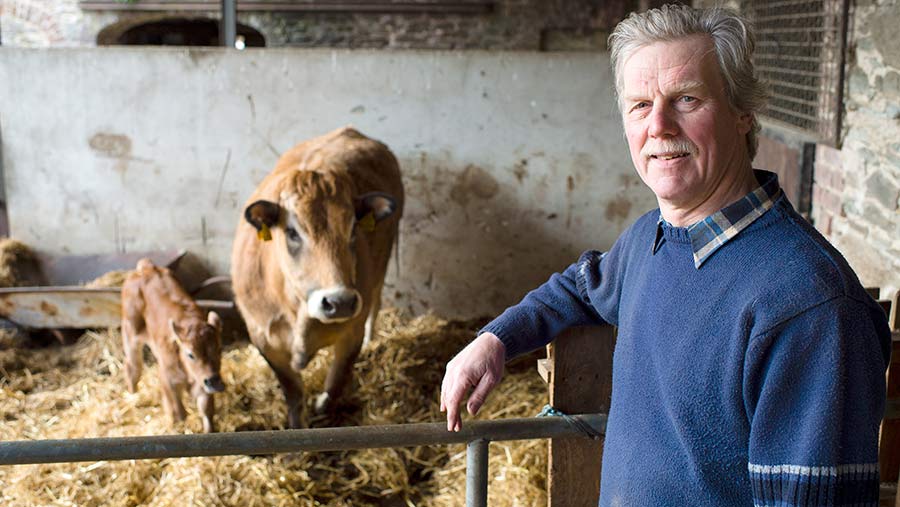Farmer Focus: Price for milling oats barely covers costs
 © Steffan Hill
© Steffan Hill Patience is a great virtue, especially in farming, but not one that I am particularly blessed with.
However, patience seems to have paid off this year, as we are currently enjoying a prolonged spell of dry, cold weather, with even some wind to dry straw that has been lying in fields since last harvest.
Everyone seems to be turning straw and social media is full of dirty tractors, straw shakers and round balers – and even some smiling farmers. It’s amazing how a little bright dry weather can lift moods.
It is very welcome, as all my cattle are bedded on straw and I was beginning to worry we would run out, as there is very little straw available to buy. Hopefully we will have it all baled and off the fields within a day or two.
See also: New spring oat variety with miller backing good bet for 2018
Recognition of risks
I have also delivered a couple of loads of milling oats to our local processor. The base price this year is £152/t, which is a meagre £20 above the cost of production given the wet harvest last year and the problems trying to save the straw.
Such a price is clearly not sustainable, especially if we lose our support payments sometime in the future.
Although it is up £22/t on last year, it doesn’t cover the drop in yield and the extra cost of saving the crop in a difficult harvest.
The quality was still good despite the challenges, so I struggle to understand why more recognition is not given to the costs and risks involved in production.
I struggle even more when I go into the supermarket and see the finished product in the form of porridge oats being sold to consumers at £1,530/t!
At that level of markup, it seems to me there is plenty of margin in the supply chain for everyone. A mere 2% of that price passed back to producers would mean we could farm sustainably without the need for subsidies.
Given that we waste 10m tonnes of food each year in the UK, there must be scope to reduce this and pass the savings back down the line.
Robert Moore farms on the Molenan Estate in Northern Ireland, where his family have farmed for more than 200 years. He switched to arable production in the late 1990s, away from beef and sheep. He still has a small suckler herd on non-suitable arable land.

